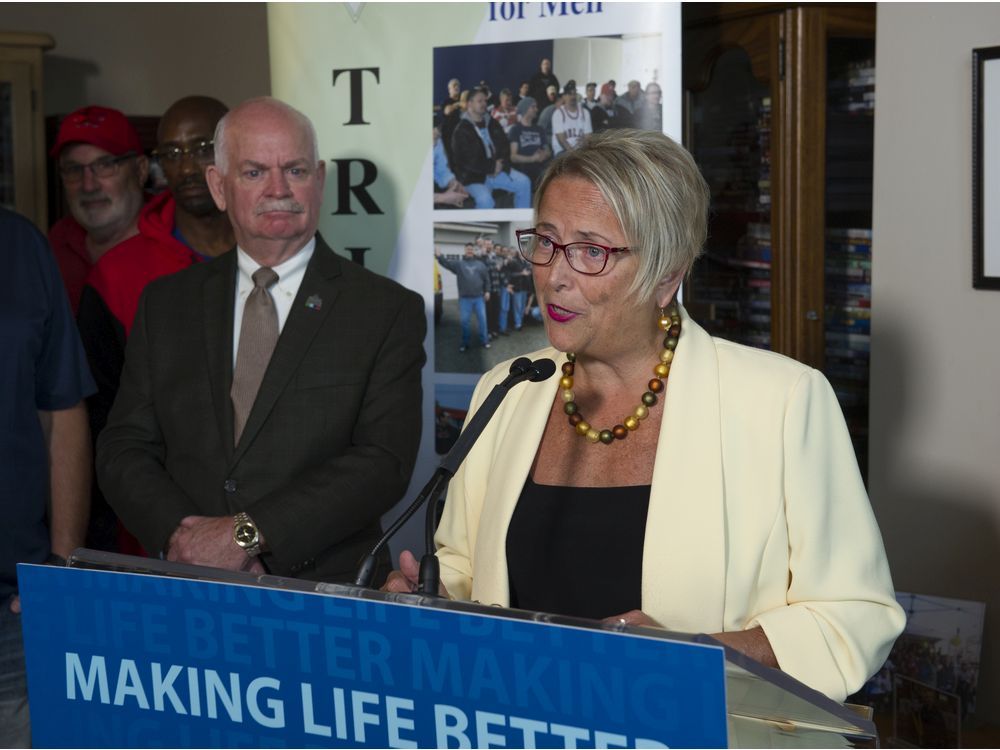Daphne Bramham: B.C. addictions minister targets province's 'wild, wild West' recovery houses

Credit to Author: Daphne Bramham| Date: Sat, 24 Aug 2019 00:53:54 +0000
B.C. Addictions Minister Judy Darcy has no illusions about the current state of British Columbia’s recovery houses and the risk that the bad ones pose to anyone seeking safe, quality care.
Nor is she alone when she calls it “the wild, wild West.”
Anyone able to build a website and rent a house can operate a so-called recovery house. Like a game of whack-a-mole, even when inspectors try to shut down the worst ones, they spring up somewhere else.
That said, the regulations they’re supposed to enforce are so vaguely worded that it’s easier for bylaw inspectors to shut places down for garbage infractions than for failure to provide the most basic of services like food and a clean bed to people desperate for help.
Even the most deplorable ones have never been taken to court by the province, let alone fined or convicted which makes the penalties of up to $10,000 moot.
It’s taken two years, but this week Darcy — along with Health Minister Adrian Dix and Social Development Minister Shane Simpson — took the first steps toward bringing some order to the chaos and overturning years of neglect.
In two separate announcements, what they’re offering is both the stick of tighter regulations and enforcement as well as the carrot of more money for operations and training staff.
The carrots announced Friday include $4,000 grants available immediately to registered and licensed recovery home operators to offset the costs of training for staff before tougher regulations come into force on Dec. 1.
On Oct. 1, the per-diem rate paid for the treatment of people on social assistance will be raised after more than a decade without an increase. Recovery houses on the provincial registry will get a 17-per-cent increase to $35.90, while recovery houses licensed by the regional health authorities will jump to $45 from $40.
The sticks are new regulations that for the first time require things like qualified staff, which common sense should have dictated years ago as essential. Recovery houses will have to provide detailed information about what programs and services they offer. Again, this seems a no-brainer, as does requiring operators to develop personal service plans for each resident and support them as they transition out of residential care.
As for enforcement, the “incremental, remedial approach” to complaints has been scrapped and replaced with the power to take immediate action rather than waiting for a month and giving written notice to the operators.
Darcy is also among the first to admit that much, much more needs to be done to rein in bad operators whose purported treatment houses are flophouses and to provide addicts and their families with the resources they need to discern the good from the bad.
More than most, the minister knows the toll that poor funding and lack of regulation is taking both on addicts who seek help and on their loved ones. She’s haunted by meetings she’s had with the loved ones of those who have died in care and those who couldn’t get the services they needed.
“It’s the most difficult thing that I have to do and, of course, it moves me to my core,” she said in an interview following the announcement. “People say, ‘Do you ever get used to it?’ Of course I don’t. If you ever get used to it, you’re doing the wrong job.
“But I try and take that to drive me and to drive our government to do more and to move quickly and act on all fronts and having said that, there’s a lot to do. There’s really, really a lot to do.”
Among those she’s met are the two mothers of men who died within days of each other in December under deplorable conditions in two provincially registered recovery houses run by Step By Step.
B.C. Minister of Mental Health and Addictions Judy Darcy shares a laugh with Scott Kolodychuk, operations manager of Surrey’s Trilogy House One recovery home where Friday’s news conference was held.
It was four to six hours before 22-year-old Zach Plett’s body was found after he overdosed and died. On Christmas Eve, a 35-year-old man died at a different Step by Step house. It was two days before his body was found by other residents.
Two years before those men died, the provincial registrar had received dozens of complaints and issued dozens of non-compliances orders. Both houses remained on the registry until this summer when owner/operator Debbie Johnson voluntarily closed them.
After years of relentless advocacy Susan Sanderson, executive director of Realistic Recovery Society, was happy to host the ministers’ Friday announcement at one of its houses. She wants to believe Darcy that these are just first steps since the per-diem rate is still short of the $40 she and others lobbied for and remains a small fraction of what people who aren’t on welfare are charged — charges that can run up to $350 a day.
Having taken these long overdue and much-needed initial steps, maybe Darcy and her colleagues can take another logical next step to support working people getting access recovery who — without access to employee benefit plans — can’t afford the cost of treatment.
They shouldn’t have to wait until they’re destitute to get care, any more than someone on welfare should be deprived of help.
CLICK HERE to report a typo.
Is there more to this story? We’d like to hear from you about this or any other stories you think we should know about. Email vantips@postmedia.com.